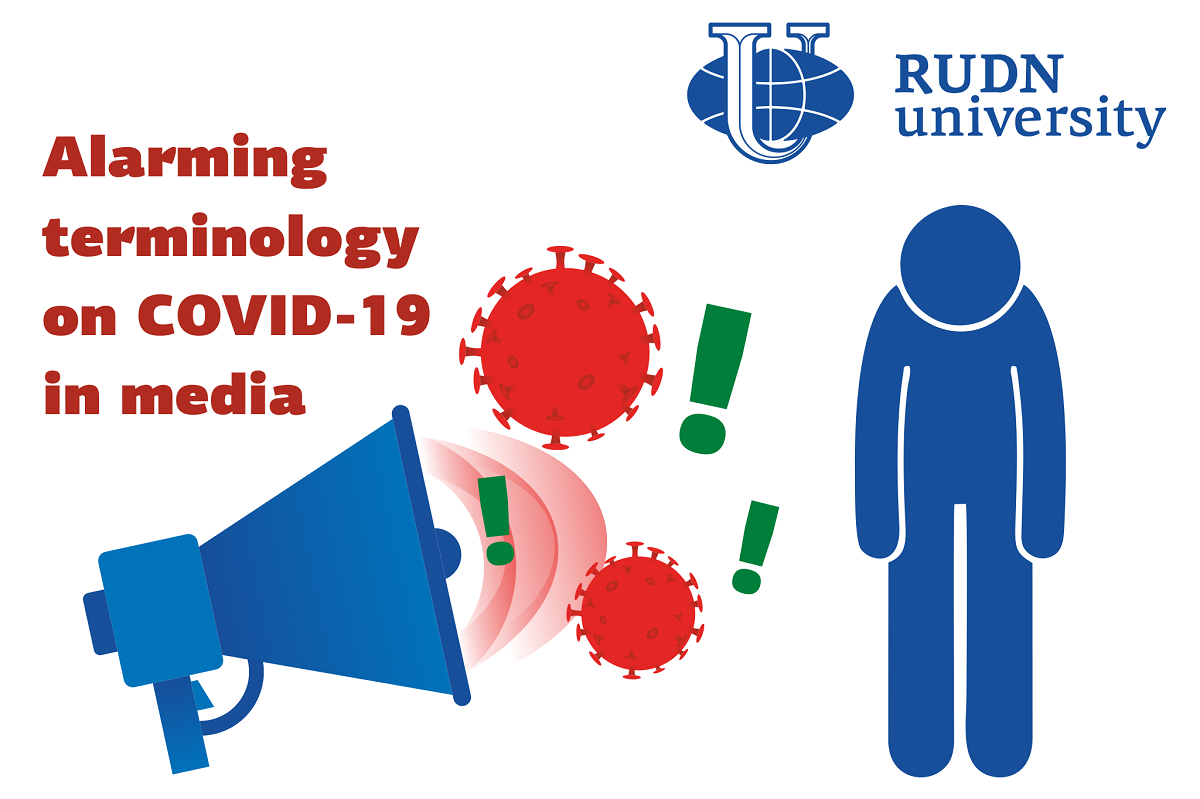RUDN University Linguist: Intimidation and Military Rhetoric in the Media during the Pandemic Make People Pessimistic
The media often uses military metaphors to describe epidemics, such as the case of influenza A (H1N1), or swine flu. The situation with COVID-19 is no exception: the media is talking about a deadly virus that brave fighters must fight with any weapon. This usually happens when the virus threatens at least an entire country. Such expressions are used to emphasize social responsibility and show what risks each country faces if its citizens do not adhere to the recommendations. On the other hand, the tone of articles about the coronavirus can be alarming or threatening. To do this, the authors describe the virus with negative characteristics, emphasize the danger of the situation, talk in detail about the number of victims, and intimidate readers.
“We decided to find out how the militaristic and alarming rhetoric of the media when describing COVID-19 changes people’s attitude to the pandemic since such an approach can negatively affect society both in the short and long term,” Georgios Georgiou, PhD, researcher at the Institute of Modern Languages, Intercultural Communication and Migration of the RUDN University.
To study the effects of alarming and militarized media coverage of COVID-19, the scientist from the University of Nicosia (Cyprus) and RUDN University took two groups of people who had previously read two different passages each. The first read a passage with alarming and militaristic metaphors, the second — neutral. After that, participants had to choose how much they agreed with the claims about COVID-19 and its consequences. It was necessary to determine people’s opinions about how soon the pandemic will end, whether, in their opinion, vaccines are beneficial, whether the economy will suffer greatly, and whether the COVID-19 era will affect people’s mental health.
The study, which was conducted via Facebook, involved 102 people — 69 women and 33 men. They had different levels of education, and most of them were residents of the United States or European countries-Greece, Cyprus, Great Britain, and other countries. The results showed that among those who read the first text, 2.5 times fewer people believed that the pandemic would end relatively quickly, and almost twice as often thought that the global economy would face a frightening crisis due to COVID-19 and that people’s mental health would significantly deteriorate. Interestingly, the average level of confidence in the effectiveness of vaccines in both groups was the same.
People who read alarmist texts or texts with military metaphors in the media are much more pessimistic than those who read messages designed in a neutral tone. The author believes that worrisome language and descriptions of war and battles will make citizens more conscious. In fact, intimidated people may stop believing that their compliance with the recommendations can make a difference at all. The media needs to change the language in which they describe the pandemic, because alarmism and military metaphors can harm public health, warns Georgios Georgiou from the RUDN University.
The results are published in Epidemiology and Health.
Products derived from microalgae represent a cutting-edge development in the field of bioeconomy. The potential of this biological resource was discussed at the international research seminar “Foundations for a Green Sustainable Energy”, part of the BRICS Network University’s thematic group on “Energy”. The event was organized by the Institute of Ecology at RUDN University.
Ambassadors of Russian education and science met at a conference in RUDN University to discuss how they can increase the visibility of Russian universities and research organizations in the world, and attract more international students in Russia.
The international scientific seminar hosted by RUDN Institute of Ecology “Experience of participation in student organizations as a way to form career skills” united scholarship recipients of the International Student Mobility Awards 2024 and Open Doors, along with members of the scientific student society “GreenLab” and the professional student association “Kostyor (Bonfire)” shared their projects focused on environmental protection.
